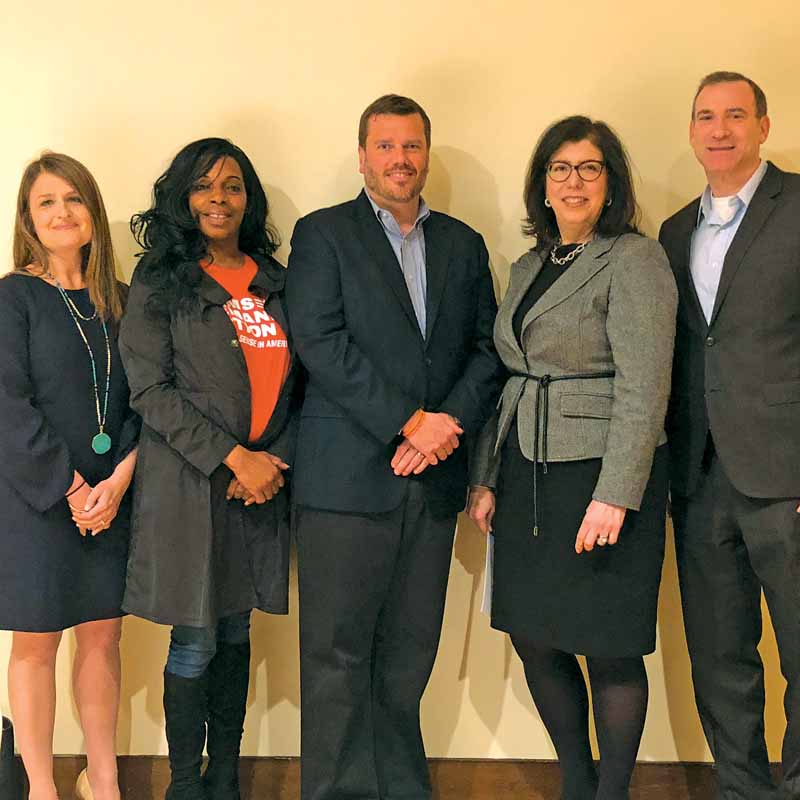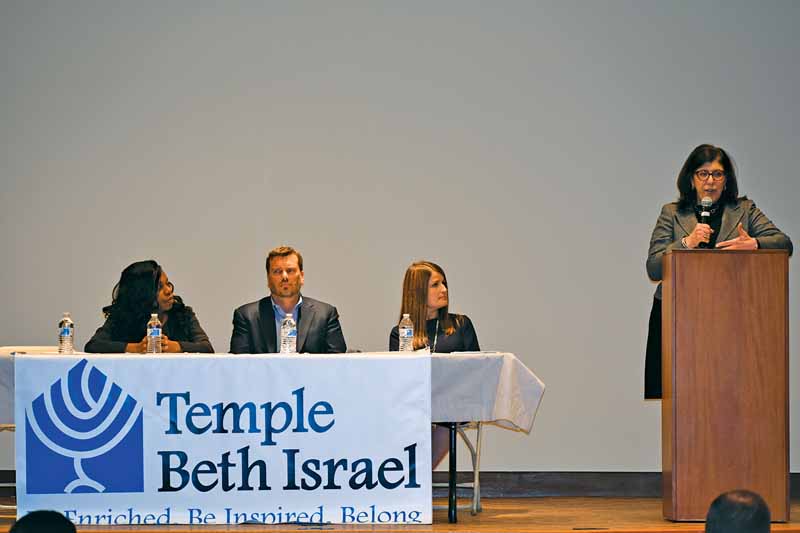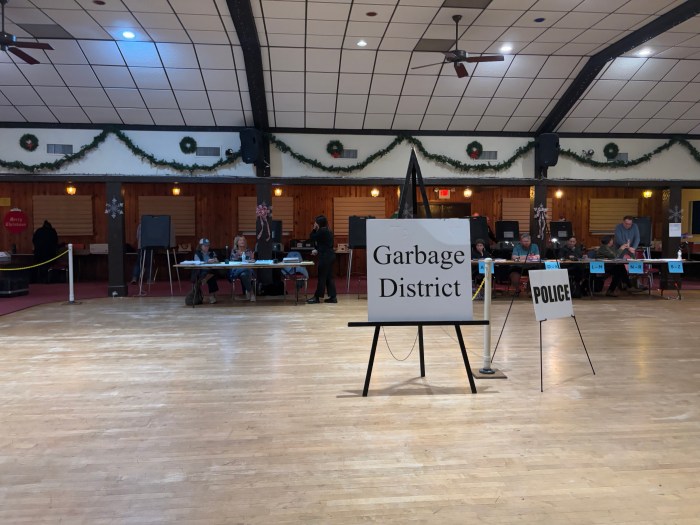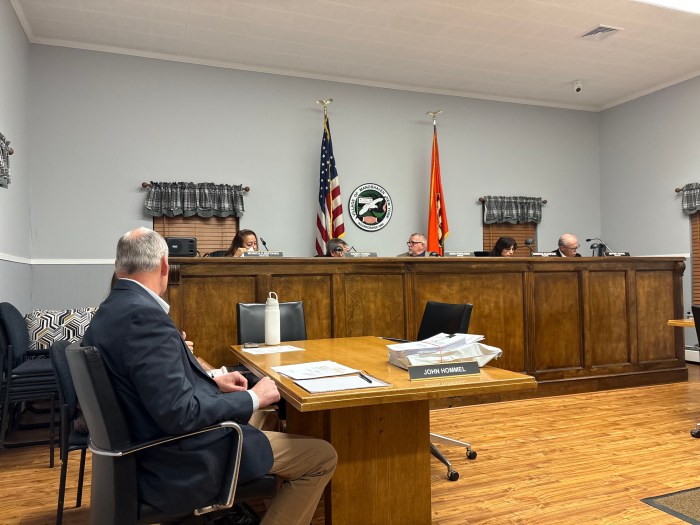
Port Washington continued the conversation on gun violence prevention at Temple Beth Israel on April 3, just a week and a half after more than 750 Port residents turned out for the March For Our Lives event on March 24 and three weeks after the student walk out at Schreiber High School and Weber Middle School on March 14. A panel of gun violence experts including executive director of New Yorkers Against Gun Violence Rebecca Fischer, volunteer and survivor from Moms Demand Action For Gun Sense in America Shenee Johnson, Nassau County District Attorney Madeline Singas and Chief Counsel of Giffords Law Center Adam Skaggs, discussed gun violence prevention legislation pending at the federal and state levels to a crowd of more than 160 people.
“We wanted to have an event like this in the synagogue because in Judaism, the highest value is saving a life, and gun violence is a really big issue,” said Chairperson of the Social Action Committee at Temple Beth Israel Allison White. “We had planned this event long before the most recent school shooting at Parkland because it is keeping with our Jewish values and that’s why we wanted to have an event like this to inform the community. We had a lot of positive responses and the issue is definitely on people’s minds and of great concern.”
Rabbi Michael Mishkin opened the event, explaining that while many felt convinced they would never be able to take on gun lobbyists and politicians who prevent common sense gun legislation, the student survivors of the Marjory Stoneman Douglas High School shooting in Parkland, FL, gave many a new hope.
“The student survivors raised their voices and said, ‘Enough. Enough going to school scared for their safety. Enough with lax gun laws and loopholes. Enough murder and bloodshed,’” said Mishkin. “Large numbers of people feel hope and believe that things can and should be different. We’re at a moment where we can help redeem our society, but instead of looking to God to do it for us, we must be prepared to commit our time and energy to make this change. It will take a sustained effort and strong commitment in order to hold our government officials accountable for the decisions they make on gun laws.”
Moderator Fischer asked Skaggs about what is now being done in Washington regarding common sense gun control legislation to which Skaggs explained that some elements of the major spending bill appeared promising including the fact that there was significant funding for school security and the Fix NICS Act, which applies penalties to government agencies for not reporting to the National Instant Criminal Background Check System.
“We’ve seen what I think is a largely symbolic gesture in the spending deal in which the Congress said the law that had for many years prohibited the CDC from conducting gun violence research, there was language in the dealt hat said nothing from the law prevented CDC from conducting that research,” said Skaggs. “I say that is largely symbolic because Congress said there is nothing stopping the CDC from doing the research and they opted not to give the CDC any money to do the research. We’ve got a long way to go.”

Skaggs also explained some of the holes in the federal background check system including the fact that records do not always make it into the system, background checks are only required when buying a gun at a gun store in 32 states and that some measures taken to restrict criminals of domestic violence are only viable in contexts such as between spouses or if the partners live together. While the holes in the federal background check system were discussed, Fischer explained what has been going on at the New York State level.
“We have one of the lowest gun death and injury rates in the nation and that is because we have the strongest laws,” said Fischer. “We close some of those holes that Adam identified, we ban assault weapons, we ban the possession of magazines capable of more than 10 rounds of ammunition and we enacted the universal background check system.”
Recently in New York State, legislation, sponsored by Senator Elaine Phillips, was passed by both houses of the Legislature requiring the removal of firearms in all domestic violence crimes as opposed to current law which prohibits individuals convicted of felonies or serious offenses from possessing certain firearms, several misdemeanor offenses involving domestic violence, including strangulation and assault and battery, had been omitted.
Assemblyman Anthony D’Urso released a list of bills that had passed in the Assembly including the establishment of a waiting period before a firearm, shotgun or rifle may be sold to a person, the establishment of risk protection orders as a court-issued order of protection prohibiting a person from purchasing, possessing or attempting to purchase or possess a firearm, rifle or shotgun and prohibiting the possession, manufacture, transportation, shipment and sale of items that accelerate the firing rate of firearms, rifles or shotguns. Bills pending in the Assembly include making the sale of ammunition for assault weapons a class E felony, enacting the “children’s weapon accident prevention act,” which creates crimes of failure to store a weapon safely in the first and second degrees and providing gun violence prevention programs in public schools.
What did you think of this article? Share your thoughts with me by email at cclaus@antonmediagroup.com.































